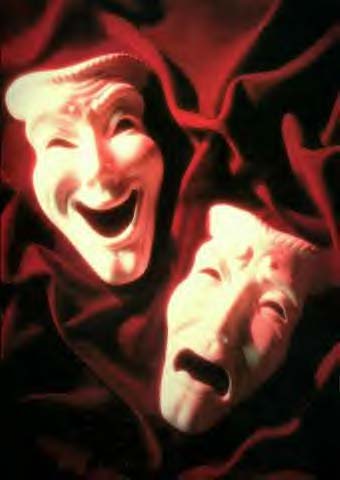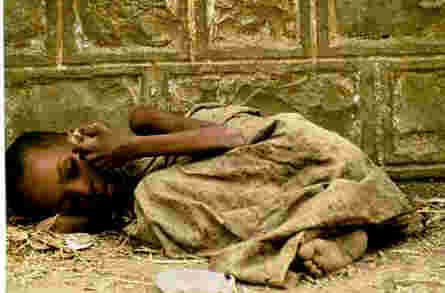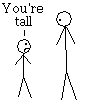|
Laurence Paul Dunbar |
|
|
Marxist Theme Poems:
We wear the Mask We wear the mask that grins and lies It hides our cheeks and shades our eyes,- This debt we pay to human guile; With torn and bleeding hearts we smile, And mouth with myriad subtleties.
Why should the world be overwise, In counting all our tears and sighs? Nay, let them only see us, while We wear the mask. We smile, but, O great Christ, our cries To the thee from tortured souls arise. We sing, but oh the clay is vile Beneath our feet, and long the mile; But let the world dream otherwise, We wear the mask!
In “We wear the mask” by Paul Laurence
Dunbar can be review with a Marxist lens since it implies a view of difference social classes, the powerful and the powerless.
In this case, slavery was not a social class, but it was a group of human beings with human rights that were not recognize
by law. At that moment of time, they were view as an asset for its buyers who belong to the upper class. They are treated
worse than animals. In this specific poem, the speaker speaks about the feelings and contradictions of being a slave, such
as “We smile, but, O great Christ, our cries / To the thee from tortures souls arise.” (Line 10-11). They hide
their feelings to protect themselves, but deep down there inside their hearts where nobody can see or feel their pain is great.
He tells about wearing mask ti hide their inner feelings so that they can survive, “We wear the mask that grins
and lies...” (Line1). The condition of being slaves doesn’t permit them to express their feelings or expression
that may upset their master. In order to endure, they have to defend and protect themselves by pretending to be obedient and
hard workers, so the speaker goes on telling that they are better off if their master sees them when they are using the mask.
In this poem Dunbar emphasizes this sharp contrast of social classes between
a free man and a slave. Although, the poem only speaks about a slave, it is assume that the free man is the powerful and the
slave who is chain by means is the powerless fighting for equality. Another
Poem breakdown by the Marxist view is Dreams: DREAMS What dreams we have and how they fly
Like rosy clouds across the sky;
Of wealth, of fame, of sure success,
Of love that comes to cheer and bless;
And how they wither, how they fade,
The waning wealth, the jilting jade--
The fame that for a moment gleams,
Then flies forever,--dreams, ah--dreams!
O burning doubt and long regret,
O tears with which our eyes are wet,
Heart-throbs, heart-aches, the glut of pain,
The somber cloud, the bitter rain,
You were not of those dreams--ah! well,
Your full fruition who can tell?
Wealth, fame, and love, ah! love that beams
Upon our souls, all dreams--ah! dreams. In “Dreams,” Dunbar mentions the basic
needs of each of us such as money, food, and waning. In the beginning of the poem, he slowly leads us to the beautiful dream,
and by the simile tones, he shows our dreams like “rosy cloud across the sky.” Furthermore, he mentions the very
basic needs of people. By the third persona voice, Dunbar goes by those by people who are working hard to achieve their goals
as they sleep a long sleep. Suddenly, he wakes them up and makes them look at the real life where hunger, doubt, regret, and
tear are existed. In the last eight sentences, he uses the contradictory
images to the beginning. Instead of “rosy cloud,” “wealth,” “cheer and bless,” there are
“doubt and long regret,” “tears,” “pain,” etc. He wants to wake everybody up and tell
them this is the really life where sadness does exist. From the Marxist point of view, Dunbar mentions the beautiful world
where everybody is satisfied their needs. That’s only “Dream” world because in real life people
exploit each other to satisfy their needs. The rich never pay attention to the poor’s dreams; they only want to make
their dreams come true by destroying the other dreams. Deep in his soul, he wants us to dreams and go to the others dream,
so we not only satisfy our selfish dreams but also the other dream. As result, our world we fulfill with laughter and happiness
like “rosy clouds across the sky.” |
|||||||||||
|
Enter supporting content here |
|||||||||||




